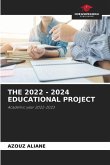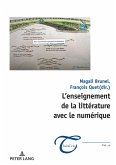The PEERS program proposes international exchanges adapted to the context of teacher training institutions wishing to take advantage of internationalization in order to link training, research, and practice. PEERS is based on the completion of Research and Innovation (R&I) projects during the academic year, during which international groups of professors and students from teacher training partner institutions collaborate remotely as well as during two placements of one week. For the students, the PEERS program aims to develop competencies in distance collaboration with the help of Information and Communication Technology (ICT), the management of intercultural groups, and the continuous improvement of their activities through reflective thinking and the spirit of research. For the professors the PEERS program aims to better link research and training, to reinforce their skills in the management of international research projects and to foster opportunities for international publications.
The aim of this collective book is to give an overview of the Issues, case studies and perspectives of the PEERS program. The first section entitled "Issues, Opportunities, and Challenges for the Internationalization of Teacher Training in a Globalized, Multicultural, and Connected World", focuses on the foundations and general features of PEERS projects, as well as the context of globalization in the intercultural and connected world in which it is situated.
The second section, "Case Studies and Lessons Learned from the PEERS Project in Southern Countries" constitutes a series of chapters presenting case studies on PEERS projects focused on innovation and cooperation in the developing world. The third section, "Results of Research-Oriented PEERS Projects," considers the results from PEERS projects that have enabled the implementation of theoretical and practical educational research, generally taking the form of small-case research studies or innovations in the design of teaching units. Finally, in the conclusion we propose to present the key points of the three sections that make up this book "Linking Research and Training in Internationalization of Teacher Education with the PEERS Program: Issues, Case Studies and Perspectives".
The aim of this collective book is to give an overview of the Issues, case studies and perspectives of the PEERS program. The first section entitled "Issues, Opportunities, and Challenges for the Internationalization of Teacher Training in a Globalized, Multicultural, and Connected World", focuses on the foundations and general features of PEERS projects, as well as the context of globalization in the intercultural and connected world in which it is situated.
The second section, "Case Studies and Lessons Learned from the PEERS Project in Southern Countries" constitutes a series of chapters presenting case studies on PEERS projects focused on innovation and cooperation in the developing world. The third section, "Results of Research-Oriented PEERS Projects," considers the results from PEERS projects that have enabled the implementation of theoretical and practical educational research, generally taking the form of small-case research studies or innovations in the design of teaching units. Finally, in the conclusion we propose to present the key points of the three sections that make up this book "Linking Research and Training in Internationalization of Teacher Education with the PEERS Program: Issues, Case Studies and Perspectives".









